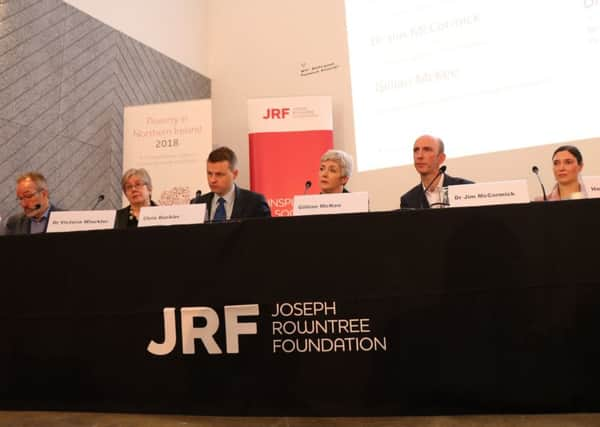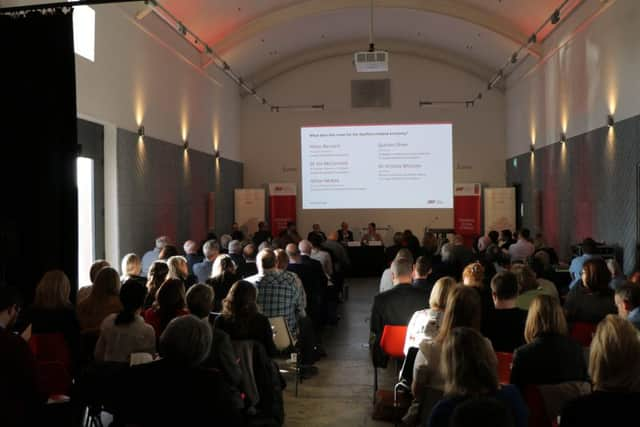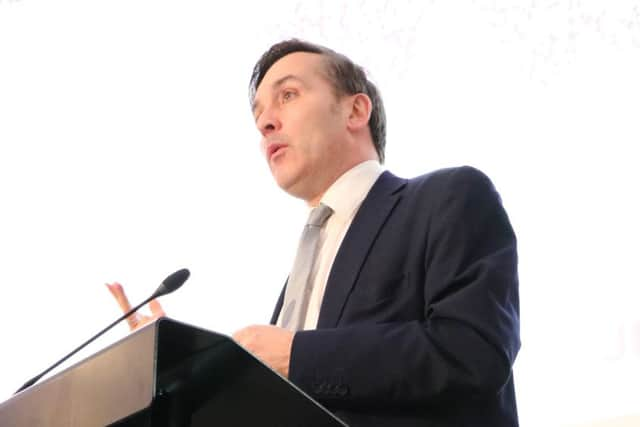Progress made in cutting poverty in NI has stalled, panel event hears


The findings, which were unveiled by the Joseph Rowntree Foundation (JRF) yesterday, noted that Northern Ireland has higher levels of worklessness than elsewhere in the UK and lower employment.
The employment rate is therefore a “major factor affecting poverty rates in Northern Ireland,” the report said. Raising the number of people in work could cut poverty levels, it added.
Advertisement
Hide AdAdvertisement
Hide AdThis, it added, was due to more inactivity due to health, caring or education than it was due to much higher levels of unemployment. Employment rates for disabled people are much lower than in the UK as a whole, the JRF research said.


There are also more people with no qualifications and fewer people with higher level qualifications in Northern Ireland, than in the rest of the UK.
But the poverty rate in the Province is actually slightly lower than it is in England or Wales, but slightly higher than it is in Scotland.
People in Northern Ireland are also less likely to be in problem with debt compared to the rest of the UK, but even so one in 10 people in the poorest fifth of the population do have a problem with debt.
Advertisement
Hide AdAdvertisement
Hide AdPoverty in the report was by JRF defined as being a household income, adjusted for family size, below 60% of family-adjusted median income as measured after housing costs have been deducted.


The findings, which are said to be part of JRF’s monitoring of changes to poverty rates in the UK and its underlying drivers, were launched at a seminar in Belfast yesterday morning in the Ormeau Baths complex, hosted by the journalist Chris Buckler.
Politicians, academics, social workers and volunteers were among the 200 or so people who attended the event.
The findings were discussed by a pane including Helen Barnard, head of analysis for JRF, Dr Jim McCormick, the foundation’s associate director in Scotland, and Gillian McKee, deputy managing director of Business in the Community.
Advertisement
Hide AdAdvertisement
Hide AdCampbell Robb, JRF chief executive, said: “It’s worrying that Northern Ireland’s progress on reducing poverty has stalled over the last decade. The falls in pensioner poverty show what can be achieved with leadership and focus, and political choices have helped mitigate the impact of welfare changes on families and children in recent years.


“The deadlock in Stormont should not halt further action to help families who are locked in a daily struggle to make ends meet. What we’ve seen today is there is a desire and willingness from politicians, local government, business leaders and charities to take action now.”
Mr Robb added: “With one in five people living in poverty in Northern Ireland, we cannot afford to wait.”